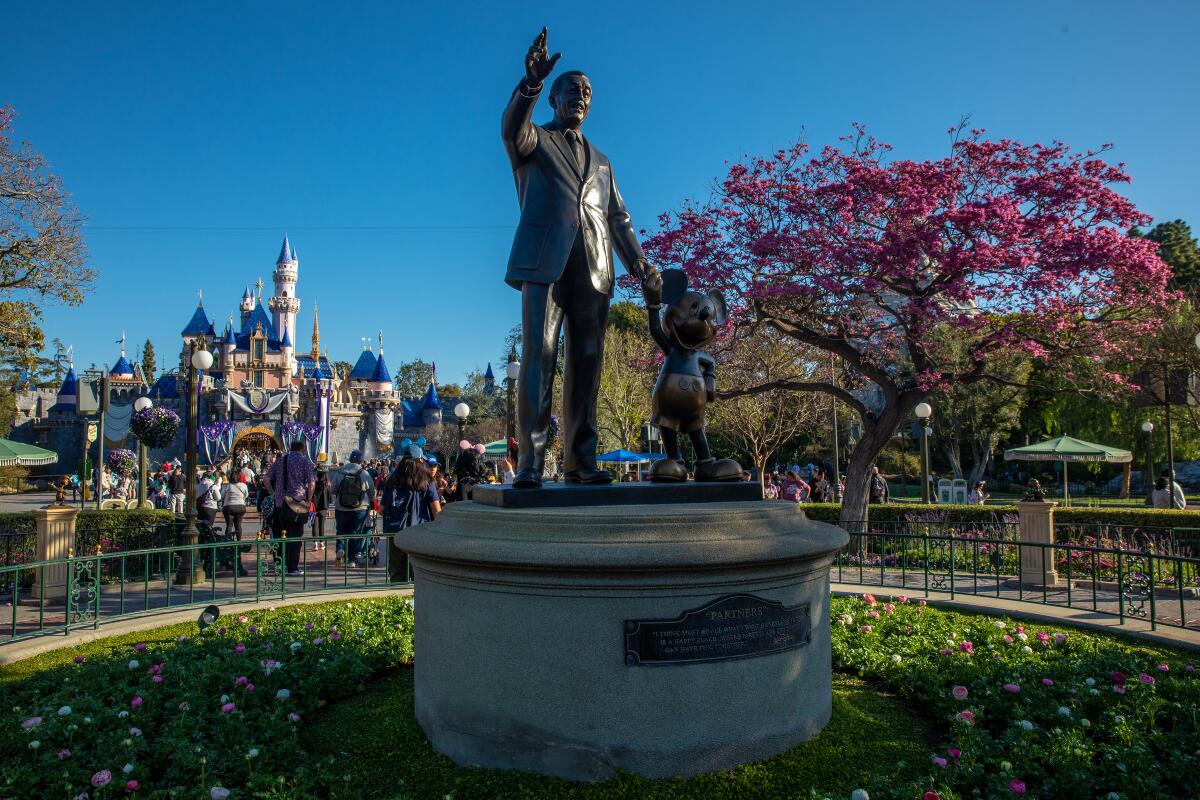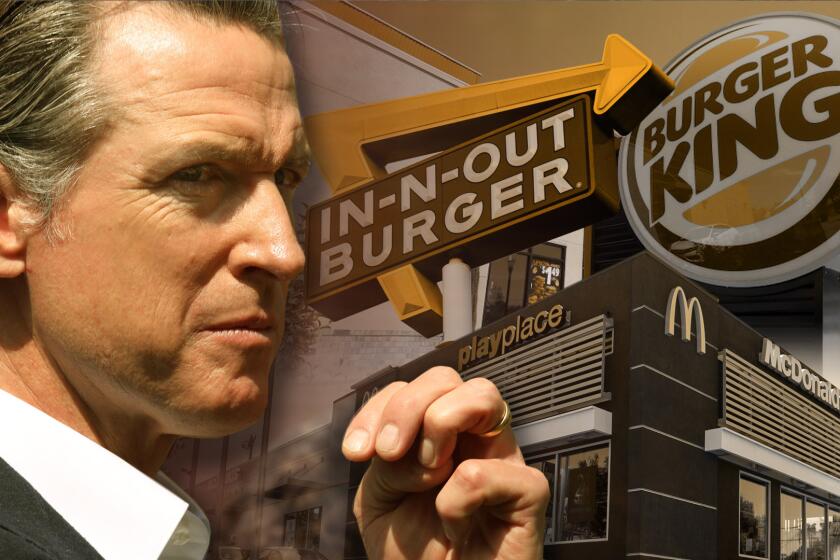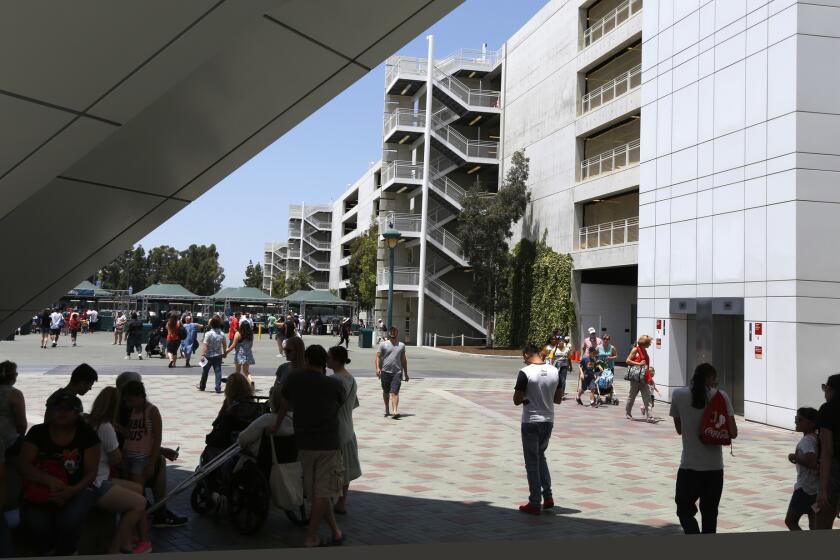California Supreme Court ends Disneyland’s fight against Anaheim wage law

- Share via
The California Supreme Court has refused to hear an appeal from Disney as to whether an Anaheim wage law applies to its lowest-paid theme park workers —setting the stage for the Disneyland resort to boost wages for many of its workers.
Over the summer, the state’s 4th District Court of Appeal ordered up raises and back pay for “cast members,” as Disney calls its employees, in a class-action lawsuit filed on their behalf. The state Supreme Court’s decision to allow the appeal court’s order to stand represents a serious legal blow to the media giant.
“Disney’s at the end of the road in terms of appeals,” said Sarah Grossman-Swenson, an attorney representing Disney workers. “The appellate decision is clear that Disney is required to comply with the law. The only issue left is the amount of damages.”
The dispute between Disneyland workers and the park began in 2018 when voters passed a law prescribing a $15 minimum wage for companies in Anaheim’s resort area who enjoyed “tax rebate” agreements with the city. The measure approved by voters, known as Measure L, had been placed on the ballot thanks to petition drive, led by a coalition of Disney unions.
The law, hammered out with the help of Gov. Gavin Newsom, increases wages for workers and allows business and unions to avoid a costly ballot fight over wages.
In the lead up to the election, Disney asked the Anaheim City Council to shred a 45-year gate tax shield and a $267-million bed-tax break for a luxury hotel project that has since been abandoned.
With those agreements canceled, Anaheim’s city attorney opined that the law wouldn’t apply to Disney.
But a class-action lawsuit representing 25,000 theme park workers filed against Disney in Dec. 2019 begged to differ.
An Orange County Superior Court judge originally sided with Disney before a three-judge panel overturned the ruling this summer, citing a provision in a 1996 Disney expansion deal passed by Anaheim in which the city agreed to repay the company if it had to cover bond payments.
Disney filed an appeal with the state’s Supreme Court in August in which it claimed the appellate court redefined what a tax rebate is in a move that would “chill” public-private partnerships such as the ’96 expansion deal that brought Disney’s California Adventure, the Downtown Disney District and Disney’s Grand Californian Hotel into existence, going forward.
It appears the legal fight ends with this week’s decision.
“We are aware of the court’s decision and will be complying with the requirements of Measure L,” said Jessica Good, a Disneyland Resort spokesperson.
Disneyland Resort workers filed a lawsuit saying the resort in Anaheim has failed to pay its workers a living wage.
Anaheim spokesman Mike Lyster said the city “will continue to monitor how the court’s ruling is implemented.”
How many workers will be affected by the law’s implementation and the sum of back pay owed are unknown at this time.
The pay scale under the law is set to rise to slightly less than $20 an hour next year after being adjusted for inflation.
Grossman-Swenson called the raises and back pay owed a “big deal” for Disney workers.
“We know that thousands of them were not paid a living wage for almost five years in compliance with the law,” she added. “This will mean that they are entitled to their money and that can make a big difference in their lives.”
More to Read
Sign up for Essential California
The most important California stories and recommendations in your inbox every morning.
You may occasionally receive promotional content from the Los Angeles Times.













